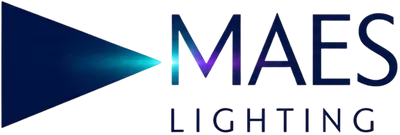
Optical Phenomena: A Look at Natural Lighting Wonders | Maes Lighting
Nature’s lighting wonders, from rainbows to the aurora borealis, inspire awe and remind us of light’s incredible properties. At Maes Lighting, we draw inspiration from these optical phenomena to create innovative lighting solutions for industrial and commercial spaces. This guide explores the science behind natural lighting wonders and how they influence modern lighting design.
Understanding Optical Phenomena
Optical phenomena occur when light interacts with the atmosphere, water, or other elements, creating stunning visual effects. These natural displays showcase the principles of reflection, refraction, and dispersion, which also inform advanced lighting technologies. The National Weather Service explains how atmospheric conditions produce these effects. [Source: https://www.weather.gov/]
What Causes Optical Phenomena?
Most optical phenomena result from light bending, scattering, or reflecting due to particles like water droplets or ice crystals. These interactions create vibrant displays, often visible during specific weather conditions.
Common Natural Lighting Wonders
Let’s explore some of the most captivating optical phenomena and the science behind them.
Rainbows
Rainbows form when sunlight refracts, reflects, and disperses through water droplets, splitting light into its color spectrum. The National Oceanic and Atmospheric Administration notes that rainbows require sunlight and rain at a specific angle, typically 42 degrees. [Source: https://www.noaa.gov/]
Aurora Borealis and Australis
The aurora, or northern and southern lights, occurs when charged particles from the sun collide with Earth’s atmosphere, exciting gases like nitrogen and oxygen to emit light. This phenomenon is best seen near the poles, as explained by NASA. [Source: https://www.nasa.gov/]
Halos and Sun Dogs
Halos are rings of light around the sun or moon, caused by ice crystals refracting light in the atmosphere. Sun dogs, bright spots on either side of the sun, form similarly, often in cold climates. These effects inspire lighting designs with diffused, halo-like illumination.
How Optical Phenomena Inspire Lighting Design
The beauty and science of natural lighting wonders influence modern lighting technologies, enhancing both aesthetics and functionality.
Color Spectrum in LEDs
Rainbows demonstrate light’s color spectrum, inspiring LEDs with adjustable color temperatures. Maes Lighting’s industrial LEDs offer customizable tones for various environments, mimicking natural light’s vibrancy.
Diffused Lighting Effects
Halos and auroras highlight the beauty of diffused light, leading to fixtures that soften illumination for a natural glow. This approach is ideal for spaces requiring gentle lighting, such as offices or retail settings.
Energy Efficiency and Sustainability
Nature’s efficiency in creating light, like the aurora’s low-energy glow, encourages sustainable lighting solutions. LEDs, which use up to 70% less energy than traditional fixtures, reflect this principle, as noted by the U.S. Department of Energy. [Source: https://www.energy.gov/]
Applications of Nature-Inspired Lighting
Drawing from optical phenomena, modern lighting can enhance various settings with beauty and functionality.
Industrial and Commercial Spaces
LEDs with high color rendering, inspired by rainbows, improve visibility in warehouses and factories. Maes Lighting’s industrial LEDs ensure clarity for tasks while saving energy.
Hazardous and Wet Areas
Nature’s resilience in harsh conditions, like halos in cold climates, informs durable fixtures for challenging environments. Maes Lighting’s wet area LEDs and explosion-proof lighting are built for tough settings.
Architectural and Landscape Lighting
Auroras inspire dynamic, colorful lighting for landscapes and building facades, creating stunning visual effects. LEDs can replicate these effects, enhancing outdoor aesthetics with minimal energy use.
Best Practices for Implementing Nature-Inspired Lighting
To incorporate the principles of optical phenomena into your lighting, follow these best practices:
Choose Versatile Fixtures
Select LEDs with adjustable color temperatures to mimic natural light effects, such as the warm tones of a sunset or the cool glow of an aurora. Maes Lighting’s industrial LEDs offer flexibility.
Prioritize Energy Efficiency
Opt for energy-saving LEDs to reflect nature’s sustainable light displays. These fixtures reduce costs and environmental impact, aligning with modern sustainability goals.
Work with Experts
Consult professionals to design lighting that balances aesthetics and functionality. Maes Lighting’s consultation services provide tailored solutions for your space.
Maintaining Your Lighting Systems
To ensure longevity and performance of nature-inspired lighting, follow these maintenance tips:
Regular Inspections
Check fixtures quarterly for dust or wear, ensuring optimal brightness and color accuracy, especially in outdoor or wet environments.
Clean with Care
Use non-abrasive materials to clean lenses, preserving the clarity needed for diffused, natural-like effects. Maes Lighting’s accessories support maintenance needs.
Upgrade as Needed
Incorporate smart controls or new LED models to enhance efficiency and replicate evolving natural effects, keeping your lighting system up to date.
Conclusion
Optical phenomena like rainbows and auroras reveal the magic of light, inspiring innovative, sustainable lighting solutions. At Maes Lighting, we harness these principles to create energy-efficient, beautiful illumination for any environment. Explore our industrial LEDs and wet area LEDs to bring nature-inspired lighting to your space today.



